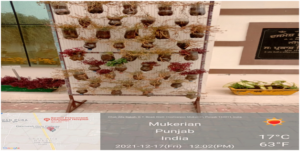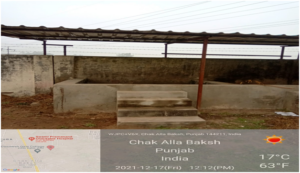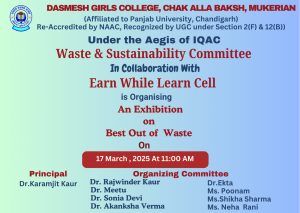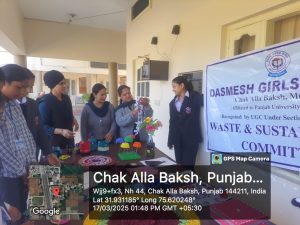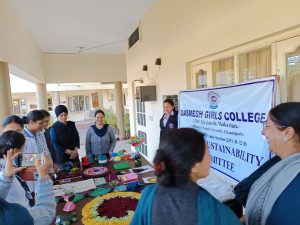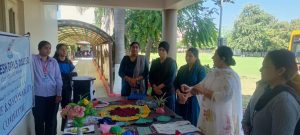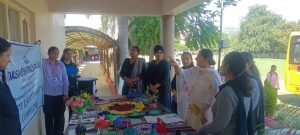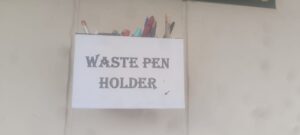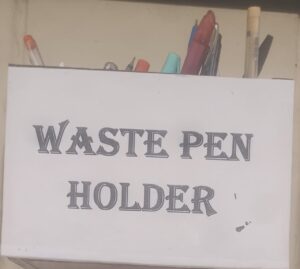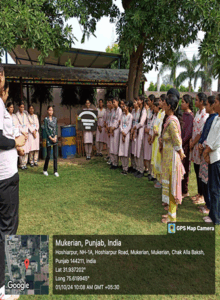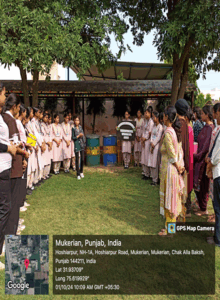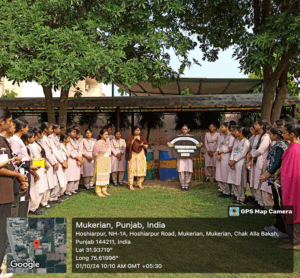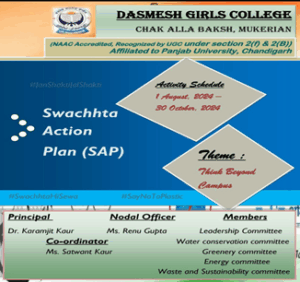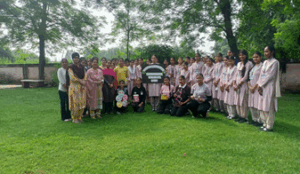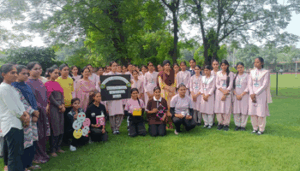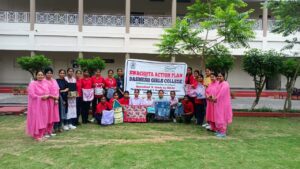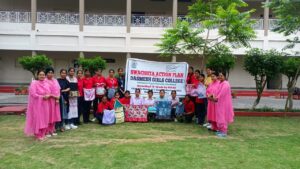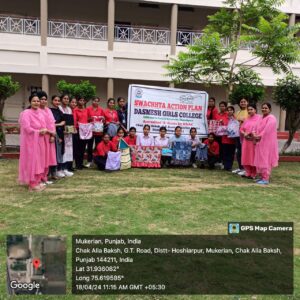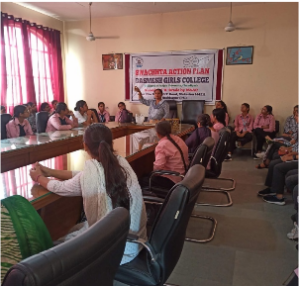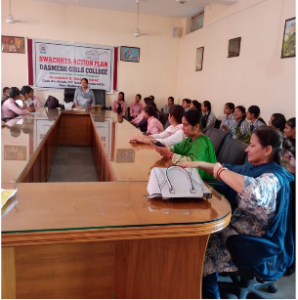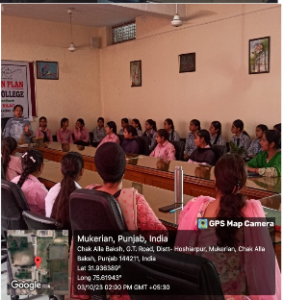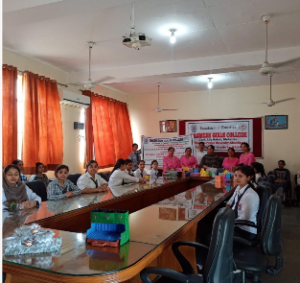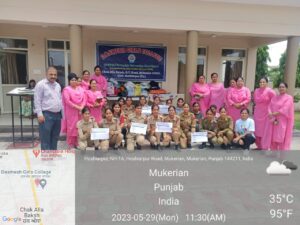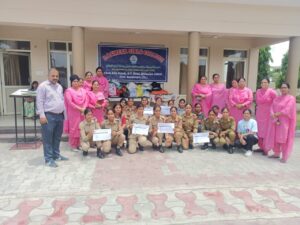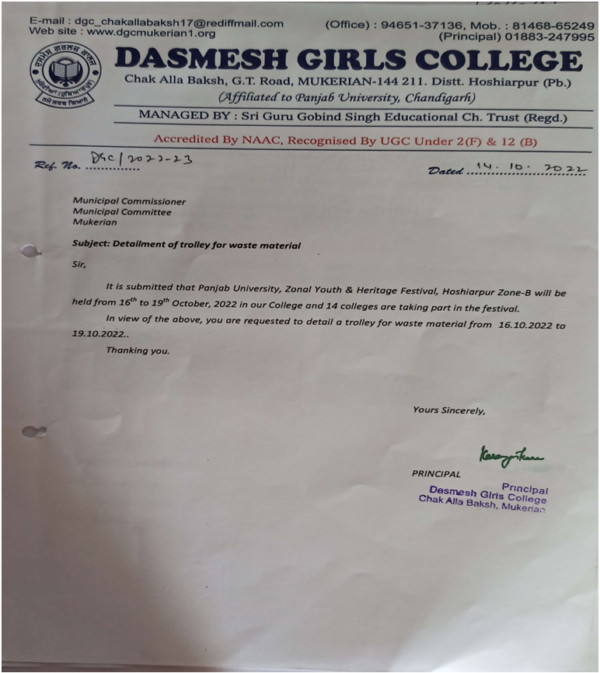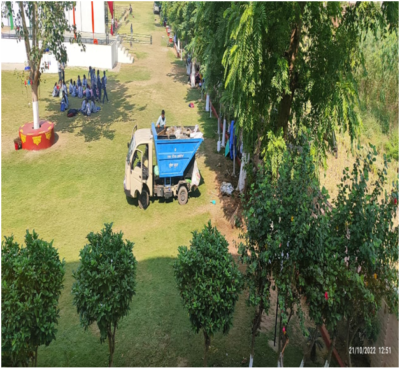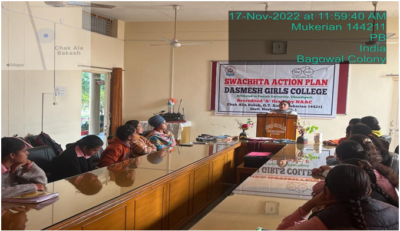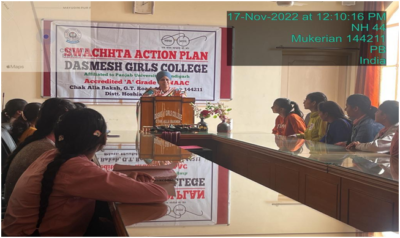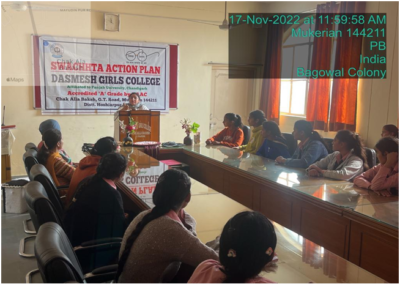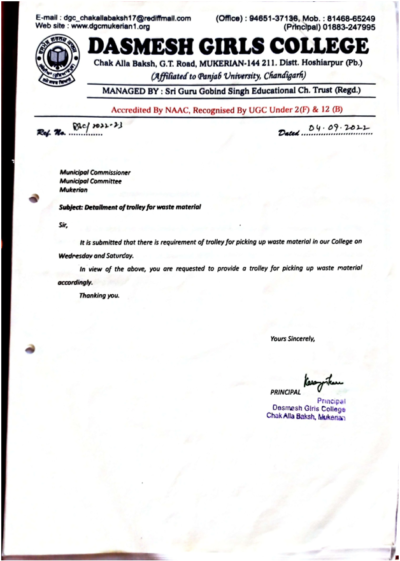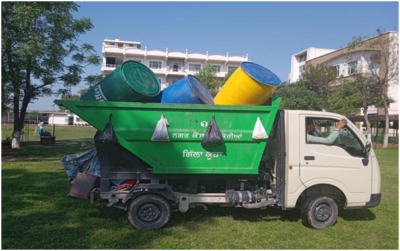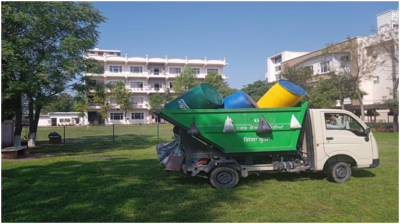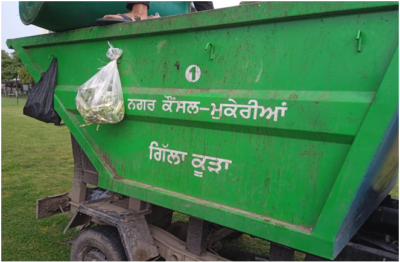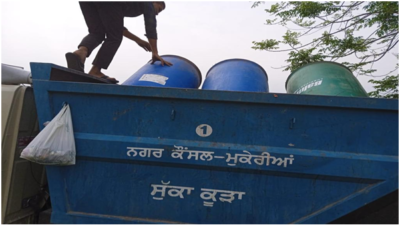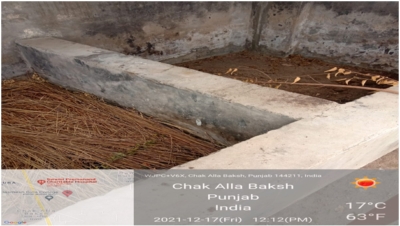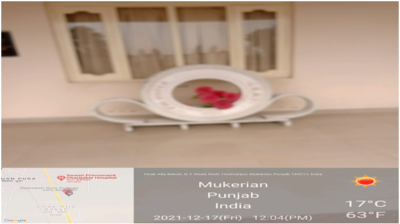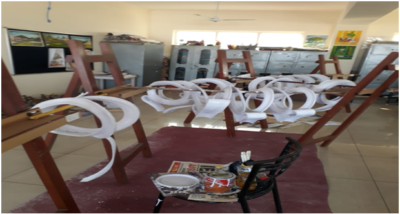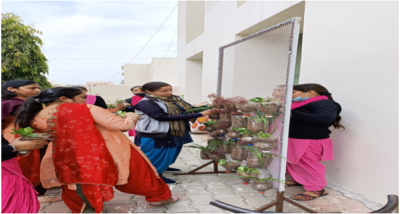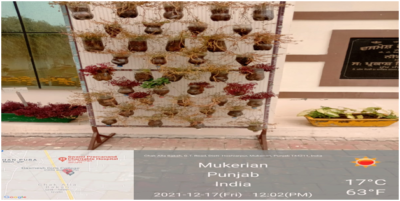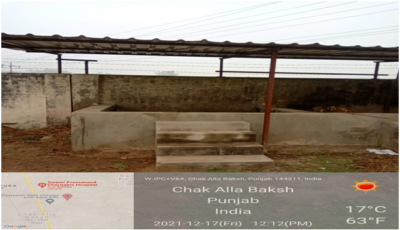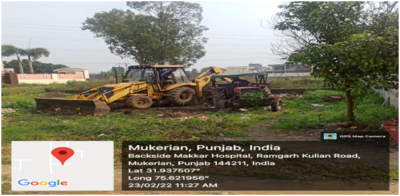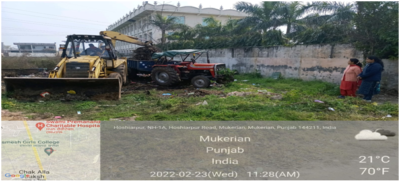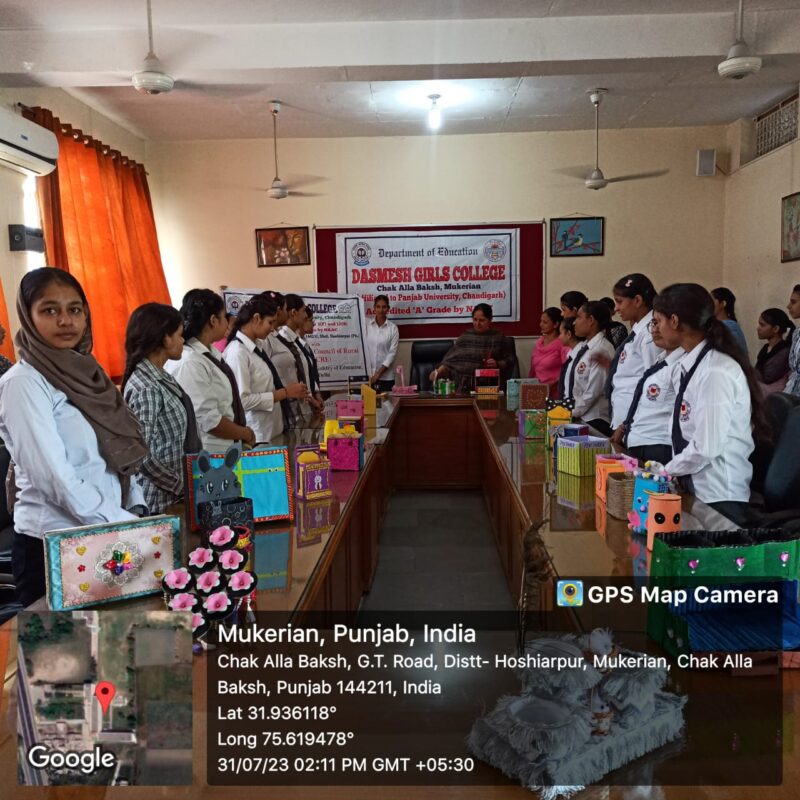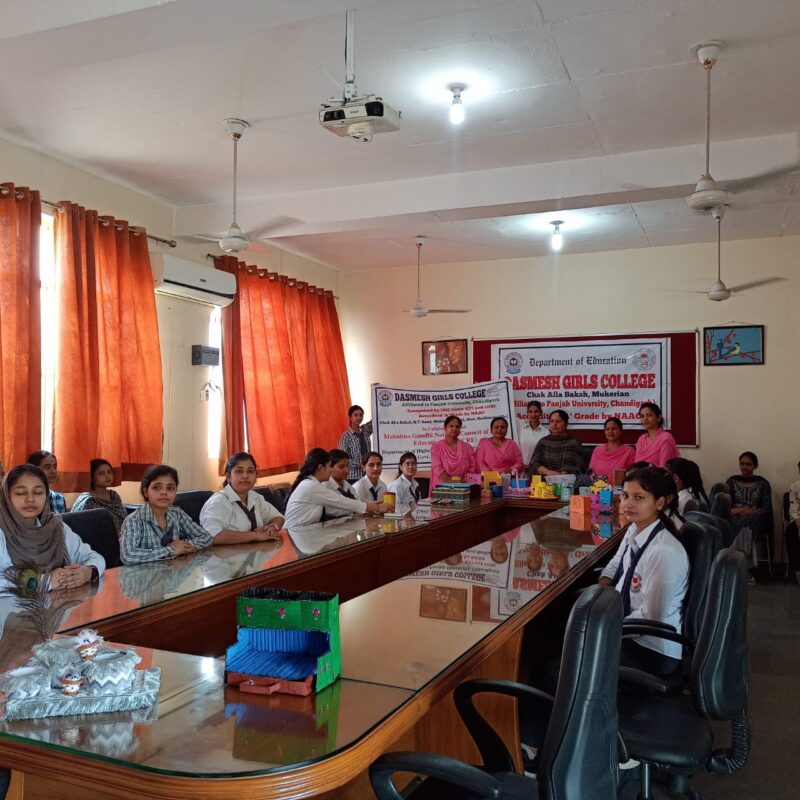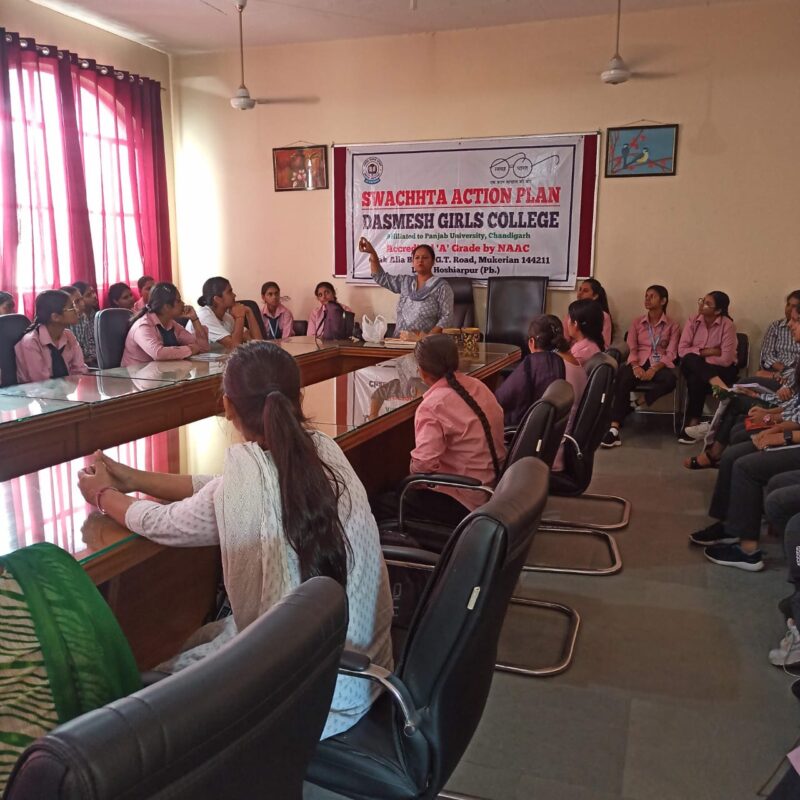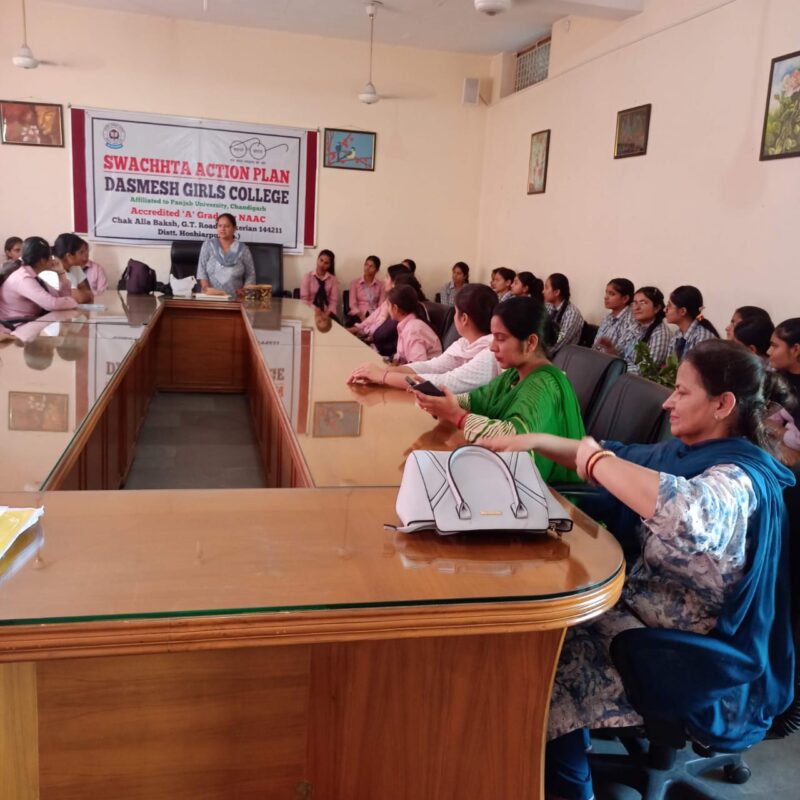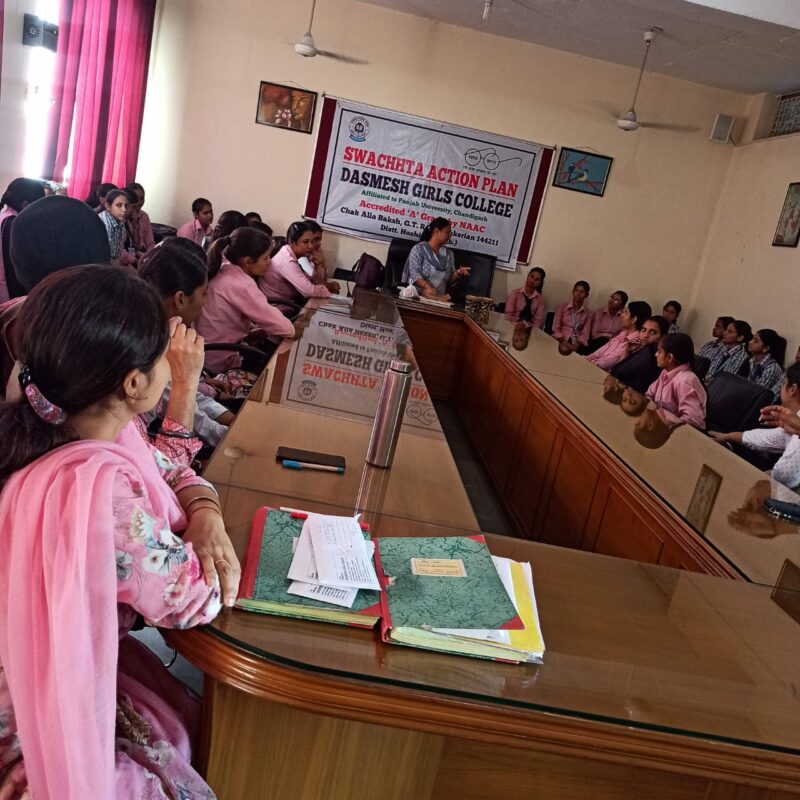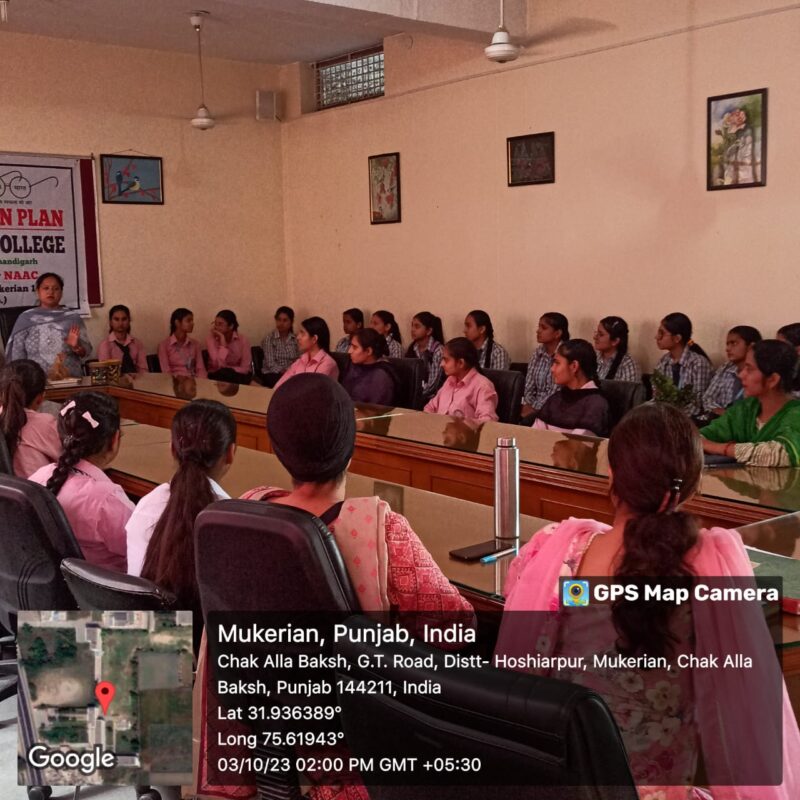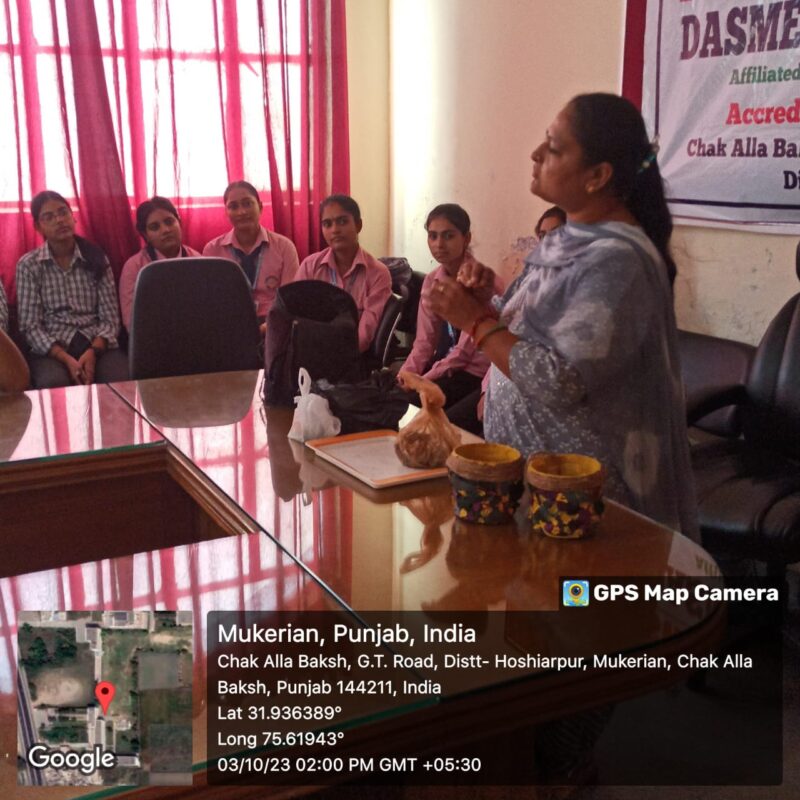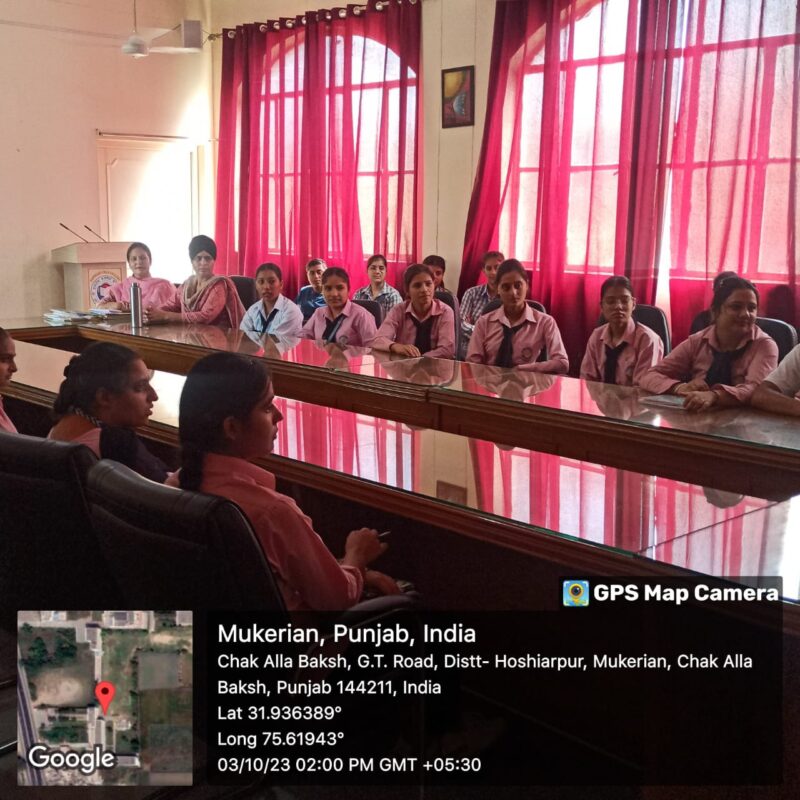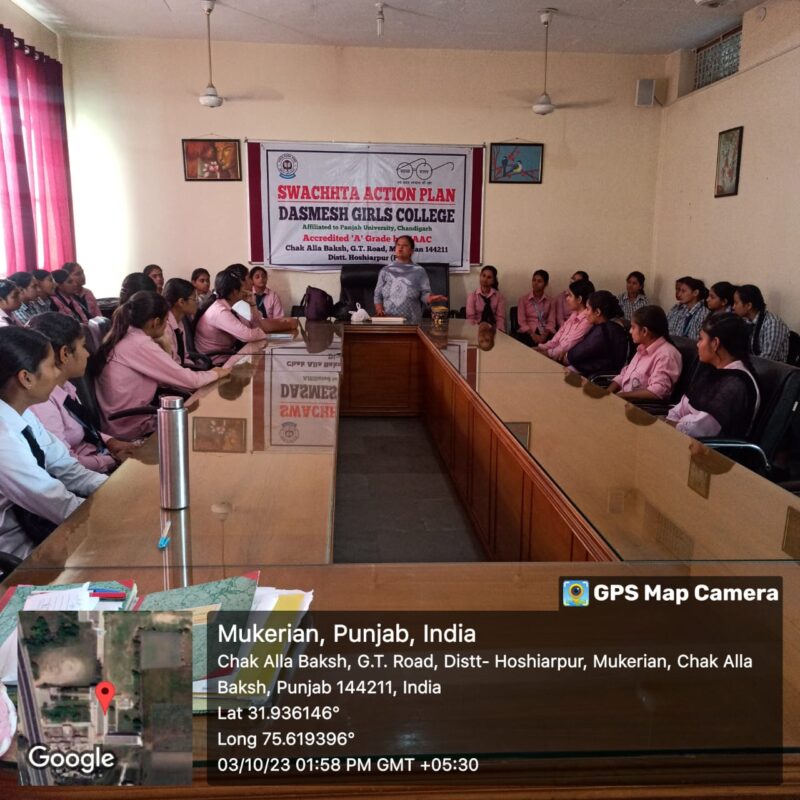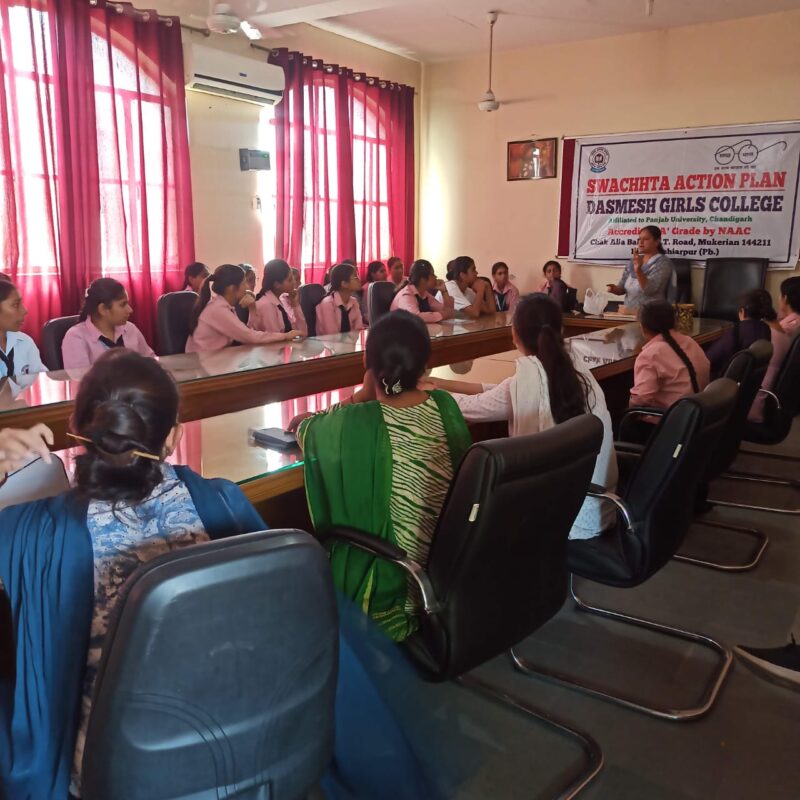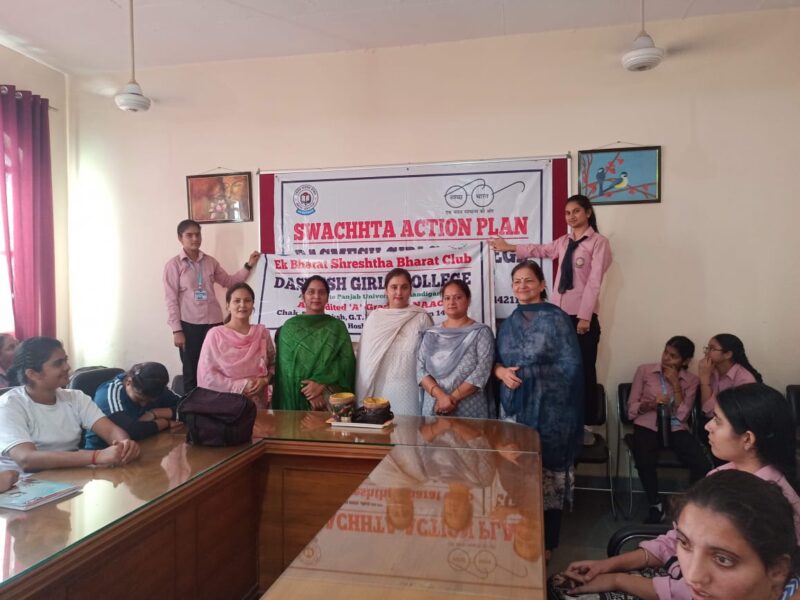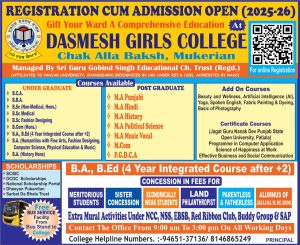Session 2021-22
The waste is generated by all sorts of routine activities carried out in the College that includes paper, glass, green waste (plant litter), canteen waste, foods, etc. The College implements solid waste management by enforcing the waste segregation rules. The waste is segregated at each level and source. Dustbins are placed in all corridors of the classroom, laboratory, common room, and canteen and at different locations in the campus. Sweepers are allotted to each floor who manages all the waste generated in the campus. All waste/garbage from college is segregated at source and disposed of in a proper manner.
The main aim was to recycle green waste (i.e. plant litter) generated in college campus into manure that could further be utilized for gardening purpose. Thus, with this initiative, zero waste zones could be created in the college premises. Two vermin beds were prepared for the introduction of green waste mixed with cow dung in the proportion of 50:50 in each. Eisenia foetida, commonly known as red worm was used for vermin composting. Two kilograms of earthworms were inoculated in each bed after 10 days of pre-decomposition. All the beds were covered on the top by a rice straw to protect the earthworms from the predators and to prevent moisture loss. The process of vermin composting was carried out for a period of 30-40 days. The temperature and moisture content were maintained by sprinkling adequate quantity of water every day and upside down mixing of waste was done once daily. After the feed material got converted into loose, granular mounds, the entire material was collected from each bed. The cast was passed through the sieve and the earthworms were removed manually. The cast was air dried by spreading on a sheet. After sufficient moisture was lost, the vermin compost was stored in bags for further analysis.
The College also introduced the Bottle garden by use of discarded plastic bottles, old tyres, oil cans, paint boxes and other waste to grow plants.
